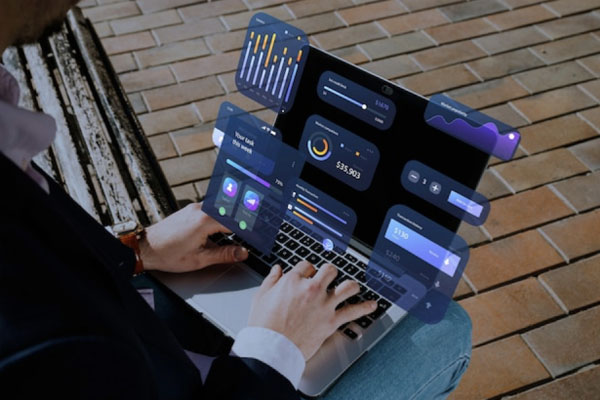Globally, CIOs are gradually understanding the problem of growing technical debt. Approximately 10-20% of their IT budgets are commonly spent on resolving technical issues, which is also common for ERP deployments. In the traditional mold, upgrading their on-premises ERP systems (to the latest version) was the only way to reduce technical debt. However, this is no longer the case.
Enterprise CIOs now recognize the value delivered by modernizing their ERP in the cloud environment. ERP modernization is now an efficient mode of business transformation. In this blog, let’s define ERP modernization and how CIOs can implement it.

What is ERP modernization?
ERP modernization is defined as upgrading an existing ERP system to the latest version, as well as migrating the ERP from on-premises to a cloud-powered platform. CIOs modernize their ERP systems for a variety of reasons, including:
- Improving the efficiency of their business processes on a modern cloud platform.
- Addressing their business problems or pain points, such as technical debt and high maintenance costs.
- Enabling seamless access to cloud-based ERP systems for remote workers.
- Improving business agility and flexibility.
Finally, CIOs choose ERP modernization as the means to achieve digital transformation and improve their competitive edge in their specific industry. This is why modernization is not a one-time activity, but a complete process.
Essential Practices for Successful ERP Modernization
Here are some of the actionable practices that CIOs can implement in their pursuit of ERP modernization:
1. Identify the challenges with the existing legacy system
Before modernizing the ERP system, CIOs must first identify the current challenges (lack of data or application security). For example, legacy ERP can incur high technical debt or operational risks, which must first be quantitatively measured. By identifying the legacy challenges, CIOs are better prepared to prioritize their requirements from a modernized ERP system.
2. Perform cost evaluation
With a cloud-powered ERP system, enterprises can move from incurring capital expenses to operating expenses. Through a detailed cost evaluation, CIOs can assess costs associated with legacy ERP systems, such as:
- On-premises server maintenance
- Regular software upgrades or replacements
- ERP integration and customization expenses
On the other hand, CIOs may need to pay for cloud-based ERP services and functionalities. They also need to consider the costs of a new ERP deployment and its financial impact on business operations.
3. Prioritize the modernized ERP functionalities
ERP modernization is no longer exclusive to large corporations, but also for small-to-medium sized enterprises. This is why many ERP vendors are offering features, which are comparable to large ERP deployments.
CIOs need to prioritize the ERP functionalities that are most critical for their business operations. For example, invoice management for suppliers or a detailed history of customer transactions. Based on these requirements, CIOs can allocate adequate cloud resources for their modernized ERP deployment.
4. Avoid the common pitfalls
Despite the benefits, ERP modernization has its share of challenges for CIOs. For instance, the duration of the modernization process is among the common pitfalls. Most ERP vendors present an implementation time for a standard “out-of-the-box” ERP solution, without estimating the time required for customization and integration.
Additionally, CIOs must prepare for other modernization-related challenges such as:
- Lack of staff training and development
- Business impact of the new ERP systems on existing operations
- Lack of change management or workforce buy-ins.
- Delay in data conversion and integration on the new ERP system.
5. Partner with the right ERP solution provider
With in-house ERP modernization, enterprises spend a lot of time and effort, which can disrupt their existing ERP processes and create process bottlenecks. An experienced ERP consulting and implementation partner can help CIOs avoid the challenges of in-house ERP modernization.
The right ERP partner can consult enterprises in aligning their business objectives with the goals of ERP modernization. Through a detailed pre-modernization assessment, they can accurately estimate the overall execution budget and timeline.
6. Involve your employees
Without employee participation, CIOs cannot improve ERP usage for daily tasks and activities, thus limiting the ROI. Be it C-level executives or frontline workers, enterprises must involve employees at every stage of the ERP modernization.
Through regular feedback, CIOs can gauge what their employees like or dislike about the new ERP system. This can help them address any general concerns and identify the popular features of the new ERP solution. While addressing their concerns, CIOs can highlight the advantages of a modernized ERP system and how it can simplify their daily work.
Future of ERP modernization
58% of CIOs believe that the pace of digital transformation will continue to grow in the business domain. Among the future changes, the ERP strategy will move from an integrated to a composable solution. With composable ERP, enterprises must ensure integration and interoperability to ensure the seamless operation of ERP modules.
Going forward, CIOs will continue to prioritize cybersecurity. 49% of CIOs rate cybersecurity as the top skill requirement in their hiring process. Companies migrating their ERP to the cloud cannot simply assign cybersecurity to external cloud providers.
Along with real-time analytics and reporting, modernized ERP systems must have built-in security to protect data from cybercriminals.
In summary
A cloud-based ERP solution provides the necessary flexibility and cost savings for CIOs aiming for digital transformation in their enterprises. Through ERP modernization, they can facilitate this transformation in place of continuously upgrading their existing system.
Among the leading ERP software companies in India, Praxis Infosolutions brings over 13 years of industry experience in the ERP domain. At Praxis, we offer a personalized approach to our customers looking to modernize their legacy ERP solutions. As a SAP-certified business partner, our team of ERP experts can deliver a variety of industry solutions using SAP technology.
We can help evaluate your existing ERP system and guide you through the modernization process. If interested, contact us today.
Business Intelligence & Analytics..
Perfect enabler for insightful decision making. Call us on +91-88050 25521/18/19

